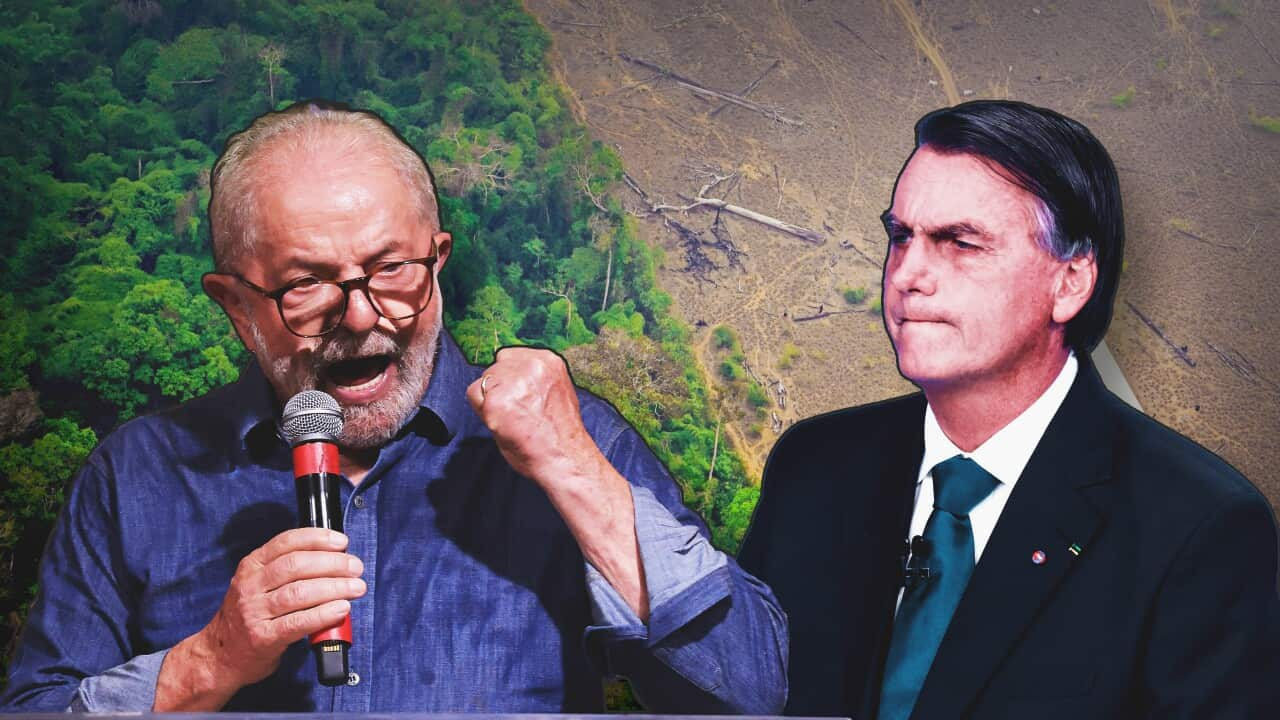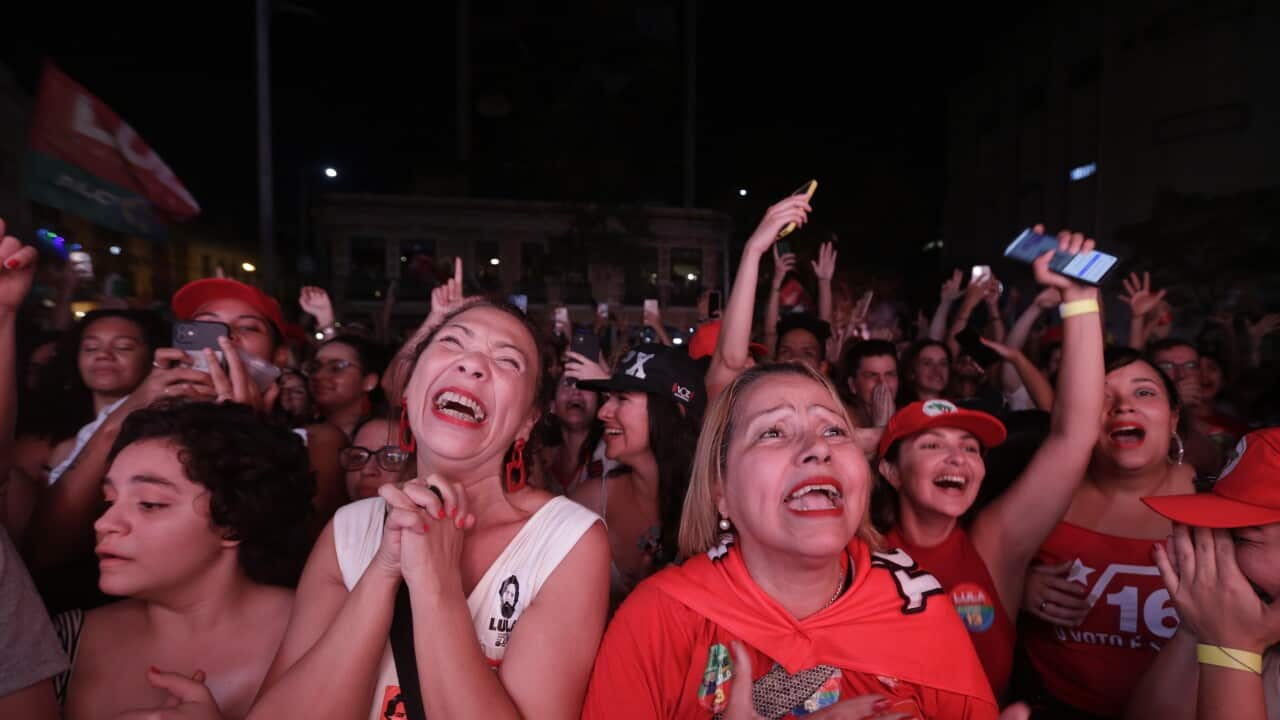Key Points
- The defeat of Brazil's far-right President Jair Bolsonaro has been met with relief by climate activists and experts.
- Deforestation in the Amazon soared under Mr Bolsonaro, amid fears the rainforest could switch to a savannah.
- From the Amazon to Australia, stopping deforestation is “crucial” in the fight against climate change, experts say.
Jair Bolsonaro’s has been hailed as the end of a “nightmare” by climate change activists, who are calling on president-elect Luiz Inácio Lula Da Silva to take swift action to save the Amazon rainforest.
Brazil’s Observatório do Clima (OC) - a coalition of civil society groups dedicated to climate action - released a statement expressing relief at the far-right leader’s defeat.
“It’s f—king over!”, the adding that the “nightmare is due to end at last”.
“Brazil chooses democracy and defeats fascism, but rebuilding the socio-environmental agenda is an obstacle race that starts now and will need a stern hand from Lula,” the OC said.
On Tuesday, Mr Bolsonaro broke his silence following Sunday's election defeat, which saw him garner 49.1 per cent of valid votes to Mr da Silva's 50.9 per cent.
Mr Bolsonaro did not dispute the result despite being yet to publicly concede, with his chief of staff confirming that the "process of transition" of power would begin.
Mr da Silva, widely known as Lula, previously served as president from 2003-2010, during which time deforestation in the Amazon declined dramatically, according to data from Brazil’s National Institute for Space Research (INPE). He is due to take over the presidency from 1 January.

Deforestation of the Amazon declined under Mr da Silva's previous terms as Brazilian president but rose again when Mr Bolsonaro took office in 2019. The Brazilian presidents between 2011 and 2018 were Dilma Rousseff and Michel Temer respectively. Source: SBS News
Australian National University biology and conservation professor David Lindenmayer said Mr Bolsonaro’s term was “an appalling time” for the environment, labelling it a “strong period of anti-science”.
“Some people described him as the ‘tropical Trump’ and I think that's really apt because the environmental management, environmental concerns were just thrown out completely,” Professor Lindenmayer told SBS News.
“His presidential so-called leadership led to a massive increase in the amount of clearing, a massive increase in the amount of illegal logging, huge impacts on Indigenous native people in parts of the rainforest. It's really been a horrendous time in Brazil, and there is no doubt that Brazil's reputation for [conservation] globally is absolutely in tatters.”
In 2021, Human Rights Watch (HRW) accused the Bolsonaro administration of having "sabotaged environmental law enforcement agencies, falsely accused civil society organizations of environmental crimes, and undermined Indigenous rights".

A deforested and burning area of the Amazon rainforest in the region of Labrea, Brazil, in early September. Source: AFP / DOUGLAS MAGNO
Following his election victory on Sunday night, Mr da Silva promised to restore Brazil’s reputation for conservation.
“Brazil is ready to resume its leading role in the fight against the climate crisis, protecting all our biomes, especially the Amazon forest,” he said.
Why stopping deforestation is 'crucial'
From the Amazon to Australia, stopping deforestation is “crucial” in the fight against climate change, Professor Lindenmayer said.
“We know whether we're in Australia, or North America, or in Brazil, that forests are a critical part of being able to tackle dangerous climate change, as well as tackling problems with biodiversity.
"And they're two of the major threats to our global economy, as identified by the World Economic Forum,” he said.
“So what was happening in Brazil was taking us in precisely the wrong direction that we needed to be to tackle those problems of climate change and biodiversity loss.”
The Amazon is "one of the world’s largest carbon sinks and ongoing deforestation reduces its ability to draw and sequester greenhouse gasses out of the atmosphere,” Monash Climate Change Communication Research Hub director David Holmes explained.
"Brazil’s performance on climate change indexes is all about stopping the march of deforestation of the Amazon, which is the main source of emissions,” he said.
Deforestation in the Amazon soared under Mr Bolsonaro, increasing by more than 50 per cent during his presidency compared to the three years before his term. In 2020, Brazil’s greenhouse gas emissions increased by 9.5 per cent, bucking a global trend that saw emissions decline due to the pandemic, Climate Observatory data released last year showed.
“Illegal mining and livestock farming are a large part of this, and Lula has a large task ahead in reinstating environmental protections that were wound back by Bolsonaro as we head into COP27 this weekend,” Associate Professor Holmes said.
From rainforest to savannah: Is it too late to save the Amazon?
In recent years, studies have found that the Amazon is at risk of (an area of grassland with scattered trees), due to climate change, with researchers warning of catastrophic local and global effects.
“The really deep-seated issue in the Amazon is that the more clearing that takes place, the more likely it is the system will switch from being a rainforest to a savannah,” Professor Lindenmayer said.
“That will not only heat up that part of the world, but it will change the rainfall patterns that have other cataclysmic consequences.”
However, there is widespread optimism that Mr da Silva can take steps to save the Amazon, despite not having a spotless environmental record.
"Whilst Lula himself has not had a perfect record on climate during previous terms in power, sometimes capitulating to oil and gas interests, he has campaigned quite strongly on climate this time around,” Associate Professor Holmes said.
Professor Lindenmayer believes Mr da Silva “can turn things around” for the Amazon.

The rainforest burns at Apui, southern Amazonas State, Brazil, on 21 September 21. Source: AFP / MICHAEL DANTAS
Professor Lindenmayer warned that “ill-informed, anti-science, anti-environment and climate change governments can really have massive negative impacts at many levels”.
“We really need as a global community to think about how we can prevent these kinds of outcomes … because the damage can be substantial. And we simply can't afford these backwards in this space,” he said.
Brazil’s Climate Observatory critiqued Mr da Silva’s record as “an old-school developmentalist who in the past gave in to oil and gas and predatory infrastructure in the Amazon”, and urged him to “engage in a new development model that sees the climate crisis and Brazilian environmental heritage as opportunities to leverage economic growth and reduce inequalities”.
“As the leader of one of the six biggest carbon emitters at a time when the effects of climate change are accelerating around the world, Lula needs to ensure that Brazil increases the ambition of its pledges to the Paris Agreement,” the OC said.
“Humanity has just 84 months to cut emissions to safeguard the 1.5C target. Brazil is part of both the problem and the solution.”













